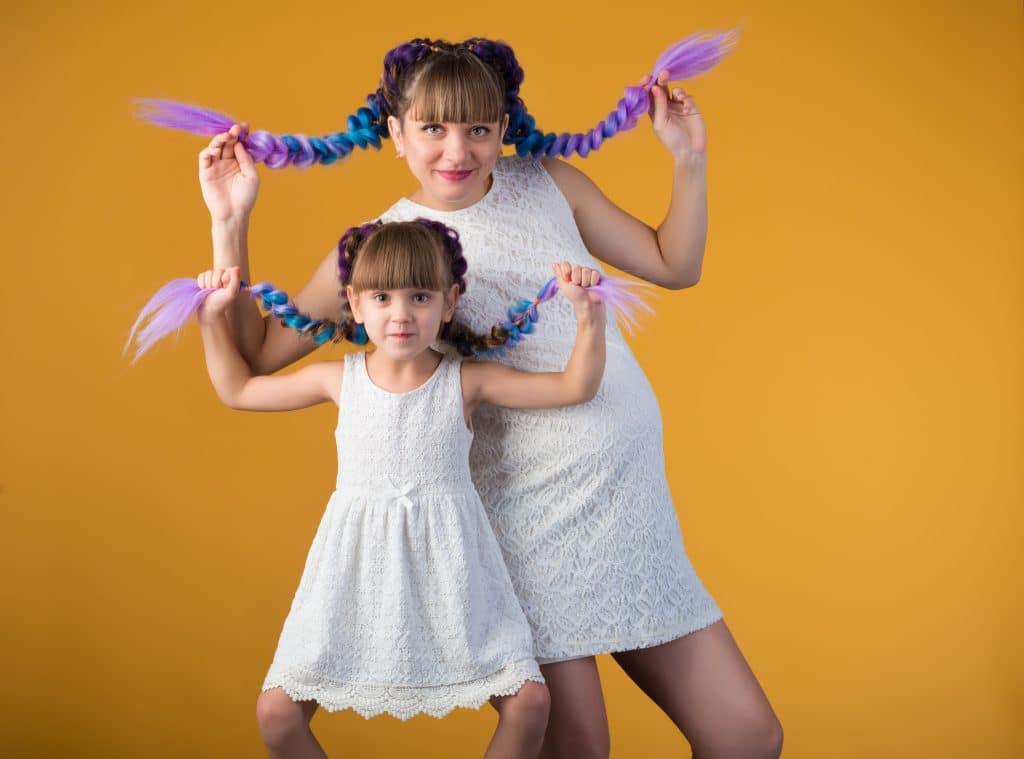Embracing individuality is key to helping children build self-confidence and self-worth. As a parent or caregiver, your role in building up their personal growth is incredibly important, and the work we do in this area when they are young can have an impact for life.
By allowing children to embrace their uniqueness and grow in their own way, you set the foundation for a confident, well-rounded individual who feels secure in who they are.
Here are some effective ways to support your child’s journey toward embracing their individuality and being proud of their true self and uniquness.

Let Your Kid Be Weird. Encourage Them To Explore Their Passions and Interests
Allow Them to Express Themselves Through Their Interests and Hobbies. One of the best ways to help your child grow as an individual is to allow them to explore activities that genuinely interest them. Encourage them to follow their natural motivations. Whether they gravitate toward painting, sports, building with recycled materials, or even something unconventional like cosplay or birdwatching let them dive into those passions.

Supporting diverse interests, even if they seem unusual, helps your child understand that their uniqueness is valued. Let your kid be weird – there’s nothing to be ashamed of.
It’s important not to pressure them into hobbies or activities you might prefer over what they love. Their personal interests are what help them discover who they are and develop the mental confidence they need for life.
Encourage Their Inner Risk-Taker
As part of their journey toward personal growth, children need to learn from their own experiences. Let them make age-appropriate choices about what they wear, how they style their hair, or which activities they want to try.
Giving them this freedom fosters a sense of independence and allows them to feel secure in their decisions.
Failure is also part of this process. Allowing your child to experience failure helps them develop resilience and self-reliance. Let them take safe risks and learn from experience. It’s through these experiences that they learn how to navigate the world and grow stronger from the challenges they face.

Celebrate What Makes Them Stand Out
Children need to know that they are valued for who they are. Complimenting them on aspects of their personality and character is a powerful way to nurture their individuality.
Focusing on their effort and growth, rather than just success or achievements, helps them understand that personal progress is what truly matters.
Displaying their creative projects or artwork prominently around the home is another way to celebrate their uniqueness. It shows them that their contributions are valued and encourages them to keep expressing themselves freely.
At the same time, it’s important to avoid comparing them to siblings, peers, or societal expectations. Everyone grows at their own pace, and by focusing on their personal growth and individual goals, you’re helping them develop without the pressure of competition.

Show Them How to Love Themselves by Loving Yourself
It’s important to model self-Acceptance and individuality yourself.
Children learn a lot by observing the adults around them, so modeling self-acceptance and embracing your own individuality can have a huge impact. Share your quirks, interests, and even your struggles with them.
Talk openly about the things that make you unique and how those traits have shaped your experiences in life.
It’s also important to discuss the value of diversity and representation. Embrace the idea that people come from different backgrounds, have various experiences, and possess unique qualities. Make sure your child understands that these differences enrich our lives rather than define what’s “normal.”

Encourage Open Communication and Active Listening
Another way to help your child embrace their individuality is by fostering open communication. Let your child know that their thoughts, feelings, and opinions matter. Encouraging them to share their ideas, even if they seem out-of-the-box, helps them feel valued and reinforces that their unique perspective has a place in the world. By actively listening to their concerns and celebrating their individuality through conversation, you create a safe space where they feel comfortable being themselves without fear of judgment.
It’s important to make sure they know it’s okay to question things and express themselves, even if their views differ from yours or others’. This allows them to develop their own sense of identity and shows them that everyone’s voice deserves to be heard.
Provide Opportunities for Independent Problem-Solving
Giving your child opportunities to solve problems on their own is another great way to nurture their individuality. Whether it’s figuring out how to put together a new toy or finding creative solutions to challenges they face, allowing them to work through these experiences helps build confidence. When children are trusted to make decisions, they develop critical thinking skills that are crucial for personal growth.
Supporting their problem-solving process also teaches them that it’s okay to approach things differently and try new ways of thinking. Each problem becomes a chance for them to explore their own path and embrace the uniqueness of their thought process. This helps them see that there’s no single “right” way to do things and that their individuality is an asset, not something to shy away from.

Help Them Own Their Failures and Wins
When you support your child in embracing their uniqueness, you’re helping them develop into secure, confident, and successful individuals. This personal growth process is essential for them to navigate the world in their own way. With your support, they can learn to thrive as their unique selves, ready to embrace their individuality and appreciate the beauty of differences in themselves and others.
By giving them the time, space, and encouragement to grow into who they are, you’re showing them that their individuality matters.
The world needs more people who embrace their uniqueness, and question the norms and status quo, just like your child will.

More Parenting Inspiration
- 5 Effective Emotional Regulation Strategies to Use With Kids
- Redirect Negative Child Behavior by Shifting the Focus with These Simple Techniques
- 6 Gentle Parenting Alternatives to Time Out
- How to Teach Kids Gratitude (Without Losing Your Patience)
- 40 Journal Prompts for Kids
Yes, this is so important! The way we respond to our child can give them confidence or make them feel ashamed or embarrassed. We need to encourage their talents and strengths even if we wouldn’t have picked them. Kids should be allowed to be their own self, not recreations of parental ideals.